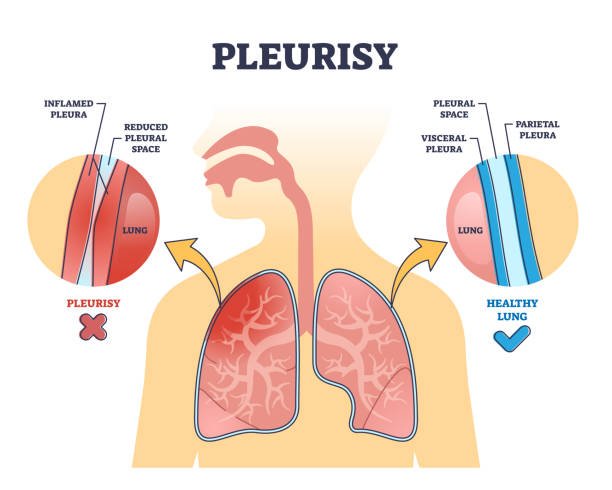Table of Contents
Which Antibiotic Is Good For Chest Pain?
Introduction
Chest pain is a common symptom, and while infections can be a cause, antibiotics aren’t a one-size-fits-all solution. This article explores why antibiotics aren’t typically used for chest pain and explains when they might be appropriate. It emphasizes the importance of consulting a doctor for diagnosis and treatment.
Antibiotics: Designed To Fight Bacteria, Not All Chest Pain
Antibiotics are powerful medications that target bacterial infections. However, many causes of chest pain are not related to bacteria:
-
Muscle Strain Or Injury:
This can cause sharp or achy pain, especially with movement.
-
Heartburn Or Acid Reflux:
A burning sensation in the chest, often with a sour taste in the mouth, is a hallmark of heartburn.

-
Anxiety Or Panic Attack:
Anxiety can manifest as tightness or pressure in the chest, often accompanied by shortness of breath or dizziness.
-
Costochondritis:
Inflammation of the cartilage that connects your ribs to your breastbone can cause sharp chest pain, especially with movement or deep breaths.
Antibiotics won’t provide relief for these non-bacterial causes of chest pain. In some cases, they can even lead to side effects like nausea, diarrhea, or thrush.
When Might Antibiotics Be Used For Chest Pain?
In some cases, chest pain can be a symptom of a bacterial infection, such as pneumonia. Here’s when antibiotics might be necessary:
-
Pneumonia:
This infection of the lungs causes cough, fever, chills, and chest pain, often accompanied by shortness of breath. Antibiotics are used to fight the bacteria causing the infection.
-
Pleuritis:
Inflammation of the lining of the lungs (pleura) can cause sharp chest pain, especially with deep breaths or coughing. If caused by a bacterial infection, antibiotics might be prescribed.

Important Note: Only a doctor can diagnose the cause of your chest pain and determine if antibiotics are the right course of treatment.
When To See A Doctor For Chest Pain
If you experience any of the following alongside chest pain, seek immediate medical attention (dial 911 in the US):
- Sudden, severe chest pain or pressure
- Pain radiating to other areas (arm, jaw, neck, back)
- Shortness of breath
- Lightheadedness or dizziness
- Sweating
- Nausea or vomiting
These symptoms can be signs of a heart attack, a life-threatening condition. Early intervention is crucial.
For any unexplained chest pain, consult a doctor to get a proper diagnosis and discuss treatment options.
FAQs On Antibiotics And Chest Pain
-
Should I Take Leftover Antibiotics For Chest Pain?
Never take leftover antibiotics without consulting a doctor. Antibiotics are meant for specific infections, and taking them unnecessarily can contribute to antibiotic resistance.
-
Can I Take Antibiotics To Prevent Chest Pain?
Antibiotics are not preventative medications. They are only effective against active bacterial infections.
-
What If My Doctor Prescribes Antibiotics For My Chest Pain?
If your doctor prescribes antibiotics, it’s important to take the entire course of medication as directed, even if you start to feel better. This ensures the complete eradication of the bacteria.
-
Are There Any Side Effects To Taking Antibiotics?
Antibiotics can cause side effects like nausea, diarrhea, or thrush. If you experience any side effects, consult your doctor.
-
What Can I Do To Relieve Chest Pain While Waiting To See A Doctor?
For non-emergency chest pain, some home remedies might offer temporary relief, but it’s crucial to consult a doctor for diagnosis and treatment. Depending on the cause, home remedies like rest, over-the-counter pain relievers (consult a doctor first), or antacids (for heartburn) might be helpful.
Conclusion
Chest pain can be caused by various factors, and antibiotics are not a first-line treatment for most cases. If you experience chest pain, especially if it’s sudden, severe, or accompanied by concerning symptoms, seek immediate medical attention. A doctor can diagnose the cause of your chest pain and determine the most appropriate course of treatment. This might involve medication (antibiotics for bacterial infections, pain relievers for muscle strain, etc.) or other strategies depending on the diagnosis. Remember, early diagnosis and treatment are crucial for managing chest pain effectively and preventing complications.
References
- American Lung Association - Provides information on various lung diseases, including pneumonia and pleurisy.
- Centers for Disease Control and Prevention - Offers information on antibiotic resistance and why it’s important to use antibiotics appropriately.
- Mayo Clinic - Provides trusted information on a wide range of health topics, including chest pain, antibiotics, and when to see a doctor.
Discover more from Pain Relief Methods
Subscribe to get the latest posts sent to your email.

